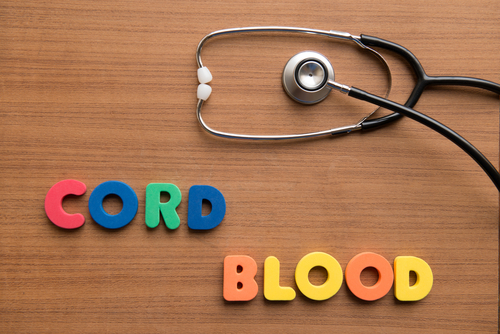Umbilical Cord Blood Cell Infusion Improves Motor Function, Study Finds

Cells collected from the umbilical cord may hold therapeutic potential to treat children with cerebral palsy. According to the results of a Phase 2 trial, infusion of autologous cord blood (ACB) cells can improve a child’s motor function and brain connectivity.
The trial data were reported in the study, “Effect of Autologous Cord Blood Infusion on Motor Function and Brain Connectivity in Young Children with Cerebral Palsy: A Randomized, Placebo-Controlled Trial,” published in the journal Stem Cells Translational Medicine.
Preclinical studies have already demonstrated that the use of isolated human umbilical cord cells could improve motor function in animals with ischemic brain injury and cerebral palsy, suggesting that a similar strategy could potentially work for the treatment of human illness.
A research team led by Joanne Kurtzberg, MD, director of Duke University Medical Center’s Pediatric Blood and Marrow Transplant Program and the Robertson Clinical and Translational Therapy Program, had already shown in 184 pediatric patients with acquired neurologic disorders that infusion of umbilical cord cells was safe and well-tolerated.
Supported by these positive safety data and the demonstrated therapeutic potential, the team decided to test the use of patients’ own umbilical cord cells as a therapy for cerebral palsy.
The Phase 2 study (NCT01147653) included 63 children ages 1 to 6 with different types and severities of cerebral palsy. Participants were randomly assigned to receive by intravenous infusion 10 to 50 million ACB cells per kilogram, or a placebo. The process was repeated one year later, but with administration of the alternate infusion.
The team observed that in the first year after treatment there were no significant differences in gross motor function between the placebo and ACB-treated groups. Still, patients who received higher doses of ACB cells showed significant improvements, suggesting that the effects were dependent on the dose.
Children who received doses above 20 million cells per kilogram showed greater improvements in motor function and normalized brain connectivity — measured by brain imaging — than children with similar age and condition who received a lower ACB cells dose or a placebo.
“We are encouraged by the results of this study, which shows that appropriately dosed infusions of cord blood cells can help lessen symptoms in children with cerebral palsy,” Kurtzberg said in a university news release.
“We still have a lot to learn about this therapy so that it can be optimized and accessible to more children with cerebral palsy,” Kurtzberg added.
The team believes that cord blood is rich in cells that can secrete signaling compounds that directly act on brain cells to promote the recovery of neurological connections. This restores some functions that were lost due to cerebral palsy.
However, the fact that many of the participants were also undergoing physical and occupational therapy may have contributed to the positive results reported in the trial, Jessica Sun, MD, pediatric hematologist-oncologist at Duke and lead author of the paper, said.
“For each child, the improvements are different and could be subtle, but sometimes even a seemingly small difference is significant,” Sun said. “For example, a child’s ability to turn their hand from facing down to facing up can change their ability to hold or grasp something, which can make a big difference in their everyday life.”
Additional studies are warranted to fully comprehend the underlying mechanism of the therapeutic effect of ACB cells.
“Now that we have identified a dosing threshold, we are planning additional studies testing the benefits of multiple doses of cells, as well as the use of donor cells for patients whose own cord blood was not banked,” Kurtzberg said.
The study was supported by the Robertson Foundation and The Marcus Foundation.
The team is currently promoting an expanded access protocol for umbilical cord blood infusions for children with brain injuries (NCT03327467). This aims to enable access to the treatment at Duke to children who have stored sibling or autologous umbilical cord blood units.
“We are hopeful that cord blood and cell therapy may have a role in treating children with cerebral palsy and brain injury and are encouraged to continue this promising research,” Sun said.
For additional information, visit this site, or contact Hildy Donner (1-844-800-267) or Jayne Cash (1-844-800-2673), or send an email to [email protected].


